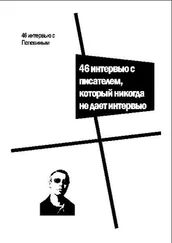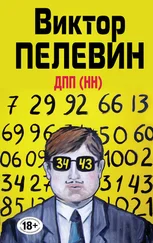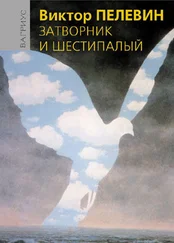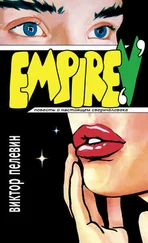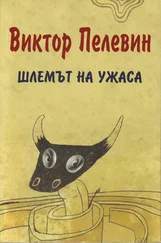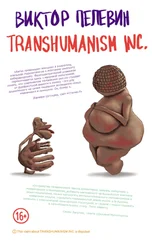Виктор Пелевин - Buddha's Little Finger
Здесь есть возможность читать онлайн «Виктор Пелевин - Buddha's Little Finger» весь текст электронной книги совершенно бесплатно (целиком полную версию без сокращений). В некоторых случаях можно слушать аудио, скачать через торрент в формате fb2 и присутствует краткое содержание. Жанр: Современная проза, на английском языке. Описание произведения, (предисловие) а так же отзывы посетителей доступны на портале библиотеки ЛибКат.
- Название:Buddha's Little Finger
- Автор:
- Жанр:
- Год:неизвестен
- ISBN:нет данных
- Рейтинг книги:5 / 5. Голосов: 1
-
Избранное:Добавить в избранное
- Отзывы:
-
Ваша оценка:
- 100
- 1
- 2
- 3
- 4
- 5
Buddha's Little Finger: краткое содержание, описание и аннотация
Предлагаем к чтению аннотацию, описание, краткое содержание или предисловие (зависит от того, что написал сам автор книги «Buddha's Little Finger»). Если вы не нашли необходимую информацию о книге — напишите в комментариях, мы постараемся отыскать её.
Buddha's Little Finger — читать онлайн бесплатно полную книгу (весь текст) целиком
Ниже представлен текст книги, разбитый по страницам. Система сохранения места последней прочитанной страницы, позволяет с удобством читать онлайн бесплатно книгу «Buddha's Little Finger», без необходимости каждый раз заново искать на чём Вы остановились. Поставьте закладку, и сможете в любой момент перейти на страницу, на которой закончили чтение.
Интервал:
Закладка:
‘Room number three,’ repeated the security guard, ‘but the numbers are in Japanese. It’s the one with three strokes one above the other. You know, like the trigram for «sky».’
‘Aha,’ said Serdyuk, ‘I’m with you.’
‘And whatever you do, don’t knock. Just let them know you’re outside - try clearing your throat, or say a few words. Then wait for them to tell you what to do.’
Serdyuk set off, lifting his feet high in the air like a stork and clutching the lantern at arm’s length. Walking was very awkward, the shoe-stretchers squeaked indignantly under his feet and Serdyuk blushed at the thought of the security guard laughing to himself as he watched. Around the smooth bend he found a small dimly lit hall with black beams running across the ceiling. At first Serdyuk couldn’t see any doors there, but then he realized the tall wall panels were doors that moved sideways. There was a sheet of paper hanging on one of the panels. Serdyuk held his lantern close to it and when he saw the three lines drawn in black ink, he knew this must be room number three.
There was music playing quietly behind the door. It was some obscure string instrument: the timbre of the sound was unusual, and the slow melody, built upon strange and - as it seemed to Serdyuk - ancient harmonies, was sad and plaintive. Serdyuk сleared his throat. There was no response from beyond the wall. He cleared his throat again, louder. this time and thought that if he had to do it again he would probably puke.
‘Come in,’ said a voice behind the door.
Serdyuk slid the partition to the left and saw a room with its floor carpeted with simple dark bamboo mats. Sitting on a number of coloured cushions scattered in the corner with his legs folded under him was a barefooted man in a dark suit. He was playing a strange instrument that looked like a long lute with a small sound-box, and he took absolutely no notice of Serdyuk’s appearance. His face could hardly have been called mongoloid, though you could say there was something southern about it - Serdyuk’s thoughts on this point followed a highly specific route as he recalled a trip he’d made to Rostov-on-Don the year before. Standing on the floor of the room was a small electric cooker with a single ring, supporting a voluminous saucepan, and a black, streamlined fax machine, with a lead that disappeared into a hole in the wall. Serdyuk went in, put down his lantern on the floor and closed the door behind him.
The man in the suit gave a final touch to a string and raised his puffy, red eyes in a gesture of farewell to the note as it departed this world for ever, before carefully laying his instrument on the floor. His movements were very slow and economical, as though he were afraid a clumsy or abrupt gesture might offend someone who was present in the room but invisible to Serdyuk. Taking a handkerchief from the breast pocket of his jacket he wiped away the tears from his eyes and turned towards his visitor. They looked at each other for a while.
‘Hello. My name is Serdyuk.’
‘Kawabata,’ said the man.
He sprang to his feet, walked briskly over to Serdyuk and took h i m by the hand. His palm was cold and dry.
‘Please,’ he said, literally dragging Serdyuk over to the scattered cushions, ‘sit down. Please, sit down.’
Serdyuk sat down.
‘I’ he began, but Kawabata interrupted him:
1 don’t want to hear a word. In Japan we have a tradition, a very ancient tradition which is still alive to this day, which says that if a person enters your house with a lantern in his hand and geta on his feet, it means that it is dark outside and the weather is bad, and the very first thing you must do is pour him some warm sake.’
With these words Kawabata fished a fat bottle with a short neck out of the saucepan. It was sealed with a watertight stopper and there was a long thread tied to its neck, which Kawabata used to extract it. Two small porcelain glasses with indecent drawings on them appeared - they depicted beautiful women with unnaturally high arched eyebrows giving themselves in intricately contrived poses to serious-looking men wearing small blue caps. Kawabata filled the glasses to the brim.
‘Please,’ he said, and held out one of the glasses to Serdyuk.
Serdyuk tipped the contents into his mouth. The liquid reminded him most of all of vodka diluted with rice water. Worse still, it was hot - perhaps that was the reason why he puked straight on to the floor mats as soon as he swallowed it. The feeling of shame and self-loathing that overwhelmed him was so powerful that he just covered his face with his hands.
‘Oh,’ said Kawabata politely, ‘there must be a real storm outside.’
He clapped his hands.
Serdyuk half-opened his eyes. Two girls had appeared in the room, dressed in a manner very similar to the women shown on the glasses. They even had the same high eyebrows - Serdyuk took a closer look and realized they were drawn on their foreheads with ink. In short, the resemblance was so complete that Serdyuk’s thoughts were only restrained from running riot by the shame he had felt a few seconds earlier. The girls quickly rolled up the soiled mats, laid out fresh ones in their place and left the room - not by the door that Serdyuk had used to enter, but by another; apparently there was another wall panel that moved sideways.
‘Please,’ said Kawabata.
Serdyuk raised his eyes. The Japanese was holding out another glass of sake, Serdyuk gave a pitiful smile and shrugged.
‘This time,’ said Kawabata, ‘everything will be fine.’
Serdyuk drank it. And this time the effect really was quite different - the sake went down very smoothly and a healing warmth spread through his body.
‘You know what the trouble is,’ he said, ‘yesterday…’
‘First another one,’ said Kawabata.
The fax machine on the floor jangled and a sheet of paper thickly covered with hieroglyphics came slithering out of it. Kawabata waited for the paper to stop moving, then tore the sheet out of the machine and became engrossed in studying it, completely forgetting about Serdyuk.
Serdyuk examined his surroundings. The walls of the room were covered with identical wooden panels, and now that the sake had neutralized the consequences of yesterday’s bout of nostalgia, each of them had assumed the appearance of a door leading into the unknown. But then one of the panels, which had a printed engraving hanging on it, was quite clearly not a door.
Like everything else in Mr Kawabata’s office, the print was strange. It consisted of an immense sheet of paper in the centre of which a picture seemed gradually to emerge out of a mass of carelessly applied yet precisely positioned lines. It showed a naked man (his figure was extremely stylized, but it was clear from the realistically depicted sexual organ that he was a man) standing on the edge of a precipice. There were several weights of various sizes hung around his neck, and he had a sword in each hand; his eyes were blindfolded with a white cloth, and the edge of the precipice was under his very feet. There were a few other minor details - the sun setting into a bank of mist, birds in the sky and the roof of a pagoda in the distance - but despite these romantic digressions, the main sensation aroused in Serdyuk’s soul by the engraving was one of hopelessness.
‘That is our national artist Aketi Mitsuhide,’ said Kawabata, ‘the one who died recently from eating fugu fish. How would you describe the theme of this print?’
Serdyuk’s eyes slithered over the figure depicted in the print, moving upwards from its exposed penis to the weights hanging on its chest.
‘Yes, of course,’ he said, surprising even himself. ‘On and giri. He’s showing his prick and he’s got weights round his neck.’
Читать дальшеИнтервал:
Закладка:
Похожие книги на «Buddha's Little Finger»
Представляем Вашему вниманию похожие книги на «Buddha's Little Finger» списком для выбора. Мы отобрали схожую по названию и смыслу литературу в надежде предоставить читателям больше вариантов отыскать новые, интересные, ещё непрочитанные произведения.
Обсуждение, отзывы о книге «Buddha's Little Finger» и просто собственные мнения читателей. Оставьте ваши комментарии, напишите, что Вы думаете о произведении, его смысле или главных героях. Укажите что конкретно понравилось, а что нет, и почему Вы так считаете.

